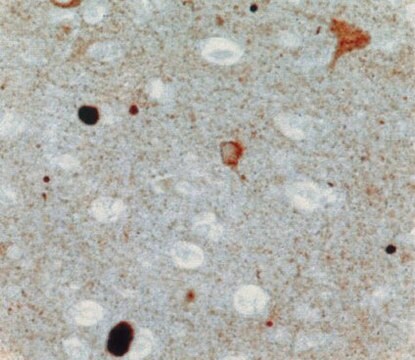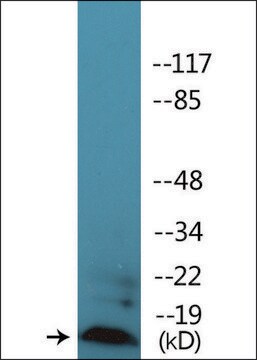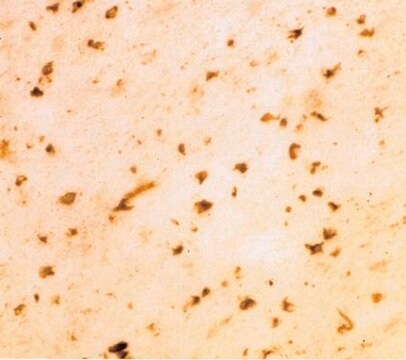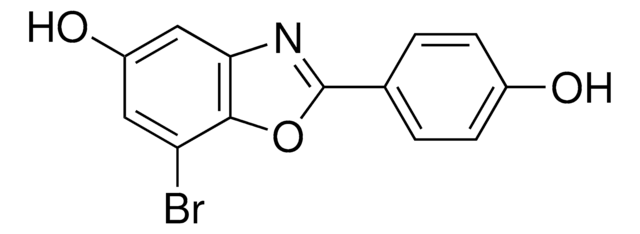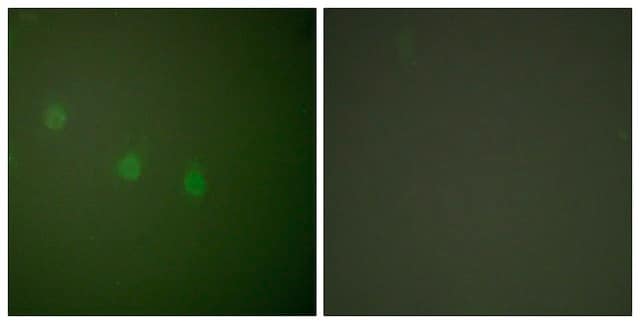AB5336P
Anti-α-Synuclein (SNCA) Antibody
CHEMICON®, sheep polyclonal
About This Item
Recommended Products
Product Name
Anti-Synuclein α Antibody, Chemicon®, from sheep
biological source
sheep
Quality Level
antibody form
affinity purified immunoglobulin
antibody product type
primary antibodies
clone
polyclonal
purified by
affinity chromatography
species reactivity
rat, mouse, human
manufacturer/tradename
Chemicon®
technique(s)
immunohistochemistry: suitable (paraffin)
NCBI accession no.
UniProt accession no.
shipped in
dry ice
target post-translational modification
unmodified
Gene Information
human ... SNCA(6622)
Immunogen
Application
Optimal working dilutions must be determined by the end user.
Linkage
Physical form
Legal Information
Not finding the right product?
Try our Product Selector Tool.
recommended
hcodes
pcodes
Hazard Classifications
Aquatic Chronic 3
Storage Class
11 - Combustible Solids
wgk_germany
WGK 3
Certificates of Analysis (COA)
Search for Certificates of Analysis (COA) by entering the products Lot/Batch Number. Lot and Batch Numbers can be found on a product’s label following the words ‘Lot’ or ‘Batch’.
Already Own This Product?
Find documentation for the products that you have recently purchased in the Document Library.
Our team of scientists has experience in all areas of research including Life Science, Material Science, Chemical Synthesis, Chromatography, Analytical and many others.
Contact Technical Service